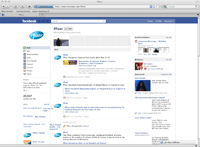Facebook sales reps told pharmas last week that they can no longer disable commenting on their pages.
In the past, companies could ask reps to disable commenting on their pages. No more.
“Starting today, Facebook will no longer allow admins of new pharma pages to disable commenting on the content their page shares with people on Facebook,” Facebook told pharmas in a May 17 email posted by Intouch Solutions on its blog. “Pages that currently have commenting disabled will no longer have this entitlement after August 15th. Subject to Facebook’s approval, branded pages solely dedicated to a prescription drug may (continue to) have commenting functionality removed.”
The policy change, said Facebook, “supports consistency for the Facebook Pages product and encourages an authentic dialogue between people and business on Facebook.”
That means pharmas can no longer “whitelist,” or disable comment and other functionality on non-brand-specific pages, which opens up a regulatory can of worms and exposes them to adverse events reporting responsibilities with harsh consequences should they fail to report to FDA a complaint about side effects caused by one of their products left in the comments section. Pharmas can still prevent posting from external sources on their pages, but they’ll have to allow – and monitor closely – comments on their own posts.
The policy change comes as long-awaited and twice-delayed FDA guidance on the use of the internet and social media for pharma promotion seems to have been shelved indefinitely, pending further studies on consumer web advertising.
“FDA has never even said whether pharmas can have a Facebook page and now Facebook is saying you have to play by our rules,” says Wendy Blackburn, EVP at InTouch Solutions. “But then, pharmas have gone this far trying to figure it out on their own.”
In addition to adverse events, said Blackburn, turning on comments exposes pharmas to potentially damaging negative comments and conversations, complaints about their products and practices and discussion of off-label uses that could bring down the wrath of the FDA on them.
“It’s a hassle,” said Blackburn. “It’s a lot to manage. I think some companies that haven’t fully embraced Facebook, it’ll be easy for them to say ‘never mind,’ but for those that have seen the benefit of it and fought those fights internally, they’ll find a way to make it work, whether that’s an app to manage the wall for them or doing a more 24/7 open monitoring approach, and from our clients, we’ve heard a mix.”








